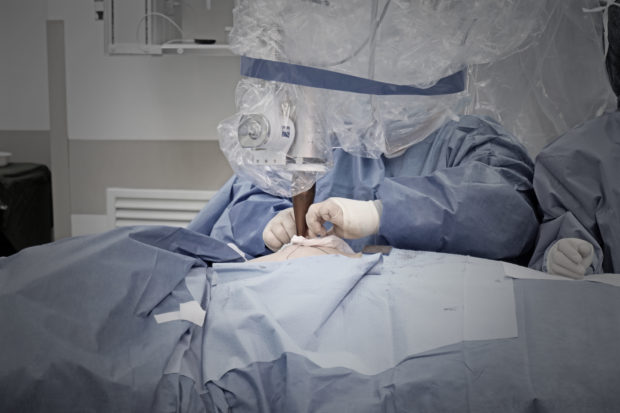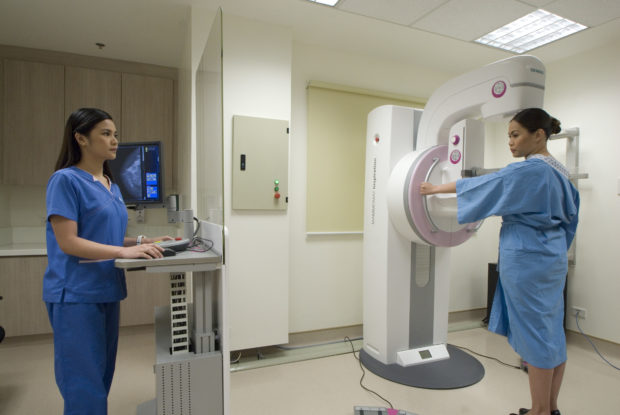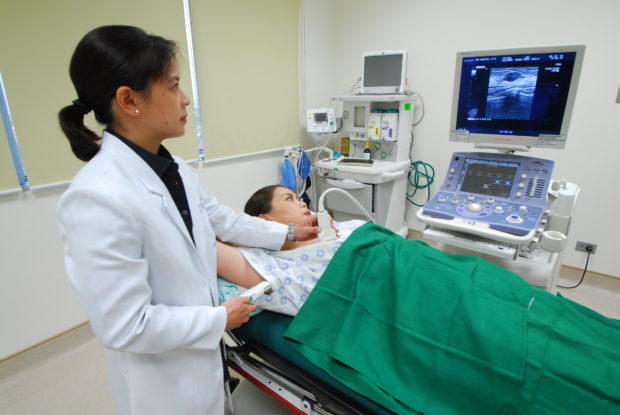New radiation treatment shows hope for early breast cancer patients
When she’s not teaching or spending time with her kids, 45-year-old Carol can often be found at home devouring the latest bestseller. But in May 2019, her untroubled lifestyle was temporarily brought to a halt when she was diagnosed with breast cancer.
Carol now admits she was worried about a lot of things – the surgery, many weeks of radiation treatment, and long recovery.
She is, however, thankful her cancer was detected early during a routine mammogram. Her doctor at The Medical City (TMC) offered her an alternative — intraoperative radiation therapy (IORT), a new highly-targeted type of radiation therapy treatment for early-stage breast cancer. IORT eliminates multiple radiation treatments and dramatically lessens side effects of this procedure. Carol got a lumpectomy and just a single dose of radiation immediately afterward. Unlike a mastectomy, a lumpectomy only removes a portion of the affected breast. Additional radiation therapy is usually required after this procedure to destroy any microscopic cancer remnants that are undetectable by breast imaging.


TMC is one of the first hospitals in the country to offer IORT which offers important benefits to women undergoing surgery for breast cancer. Conventional radiation is delivered to the entire breast, and patients must come to the hospital five days per week for about six weeks. This becomes a burden especially to those women who must travel a distance to the hospital. It could lead some to shorten or even stop their radiation therapy despite the risk of recurrence. In contrast, IORT delivers a single higher dose of radiation directly to the area where the tumor was removed.
With IORT, patients like Carol receive radiation treatment in minutes instead of six weeks. For some other patients, IORT reduces post-surgery radiation treatment by half. Instead of the 33 sessions of post-surgery radiation, they will only need 15 sessions having already received an intraoperative boost during the time of surgery.
The radiation accurately targets the affected tumor bed with less-to-no-effect to surrounding normal tissues. IORT highlights the reduced side effects of radiation, as well as convenience to the patients. Because for some patients, this may be the only radiation treatment they will need. This makes IORT an increasingly attractive option for qualified candidates.
“IORT saves time and is more convenient for the patient. Patient’s recovery period becomes shorter and she can return to normal activity earlier than the usual,” says Dr. Maria Kaiserin J. Santos-Lipana, a breast cancer surgeon at The Medical City.
IORT also utilizes a team approach as a surgical oncologist and radiation oncologist work together in the operating room during the procedure.
“If a loved one is diagnosed with breast cancer and is worried about the surgery and a painful recovery plus weeks of radiation treatments, she can ask her doctor if she is qualified for IORT,” adds Dr. Lipana.
Among Filipino women, there is a steady increase in breast cancer cases. One in every 13 Filipinas is at risk of getting the disease in her lifetime. However, when breast cancer is diagnosed early between stage 1 and 2, the chances for successful treatment is at its highest.
The first step, according to Dr. Lipana, is to schedule your mammogram.
Breast cancer risks
Whilst there is still much to understand about breast cancer, the more people are aware about its causes and how to reduce the risks, the more they can help reduce and even prevent the development of breast cancer.
A combination of things contributes to increasing the risk of developing breast cancer – genes, environment, and lifestyle – many of which are things that you can control and influence. By understanding these risks, you can reduce your risk of developing breast cancer.
If someone in your family has had breast cancer, the risk of developing breast cancer is higher than someone who does not have a family history of the disease. This, however, does not mean that you will definitely develop the disease. According to Dr. Aldine Basa, a breast cancer surgeon and head of The Medical City’s Breast Center, only 10% of patients inherit the cancer genes from a first degree relative (e.g. mother, aunt). This is a low percentage compared to the other factors that cause breast cancer. If someone in the family has had breast cancer, it is recommended that you start having annual mammograms 10 years before the age of diagnosis of the first degree relative with breast cancer.
“If your mother was diagnosed with breast cancer at 41, you should have your annual mammography at 31, or 10 years earlier,” states Dr. Basa.
The risk of developing breast cancer increases as you get older. Most women in the Philippines who develop breast cancer tend to be over 40 years old. Aging is inevitable for everyone so it is recommended that women have annual mammograms and ultrasounds starting at 40 years old to ensure that any changes are detected early.
Having multiple risk factors does not mean that you will definitely get breast cancer. It will help to address those risk factors that are within your control. Annual mammography and breast ultrasound are key to ensuring the early detection of breast cancer which will ensure survival.
Dr. Basa advises all women, “whether they feel anything or not,” to start having their yearly mammogram and breast ultrasound at 40 years old. Early detection is the best protection.

For more information, please call the Augusto P. Sarmiento Cancer Institute at 9881000 or 9887000 ext. 6214 or TMC Breast Center at ext. 6527.
ADVT